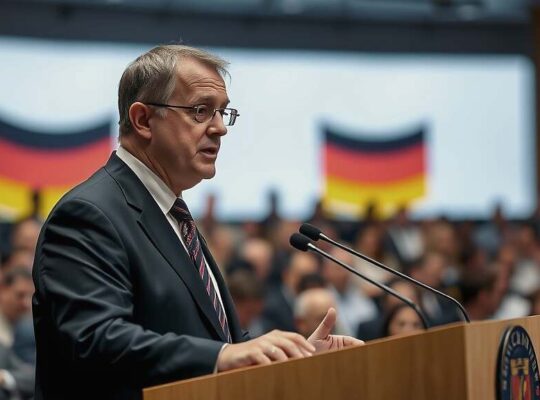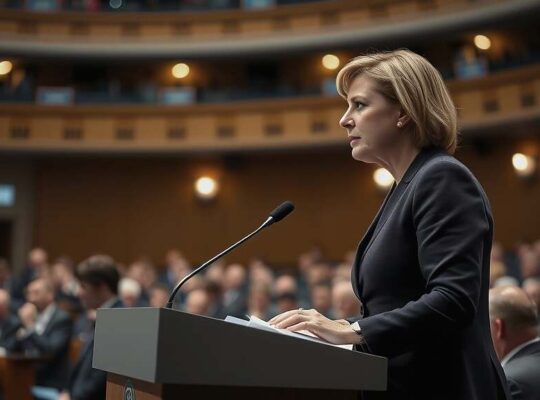A new analysis by the Ifo Institute has cast doubt on the accuracy and transparency of Germany’s planned 2026 federal budget, specifically regarding reported investment expenditure. While the budget allocates €56.1 billion for investment next year, down from €62.7 billion in 2025, the institute argues a significant portion of these funds are masking other priorities and distorting the reality of public investment.
Emilie Höslinger, a researcher at the Ifo Institute, contends that “many of the expenditures labeled as investments in the budget are, in truth, not productive future-oriented spending but rather disguised subsidies”. The institute’s calculations reveal that among the ten largest investment posts, totaling €24.4 billion – representing 43.1% of the total allocated – numerous entries lack a clear and demonstrable link to infrastructure development or maintenance.
A substantial €7.6 billion is earmarked for loans to social security institutions, while another €6.85 billion is allocated to international aid, guarantees and compensation programs. Notably, only approximately €5.8 billion of those top ten posts are genuinely directed towards critical infrastructure projects such as highways and railways. A further €2.65 billion is designated for social housing construction, a relatively minor component in the broader scope. The inclusion of €1.5 billion categorized as “provisional expenditure carried over from previous years” also artificially inflates the overall investment figures.
The decline in traditional construction investment is particularly concerning, according to Höslinger. Before the pandemic, such projects accounted for roughly 20% of total investment spending; this figure has plummeted to approximately 10% in both 2025 and the projected 2026. This shift is being compensated for by increases in debt-financed programs – including loans to social security bodies and Deutsche Bahn – which are exempt from Germany’s debt brake.
Höslinger’s criticism extends to the sheer complexity and opacity of the budget’s structure. “The numerous and often vaguely defined, entries – numbering over 700 – distort the picture of state investment activity and make it difficult to have an honest discussion about the future viability of public finances”. This lack of clarity risks undermining public trust and hindering effective fiscal planning, raising serious questions about the government’s commitment to genuine, long-term public investment. The institute’s report demands a reassessment of budgetary classifications and a renewed focus on transparent and accountable spending.












